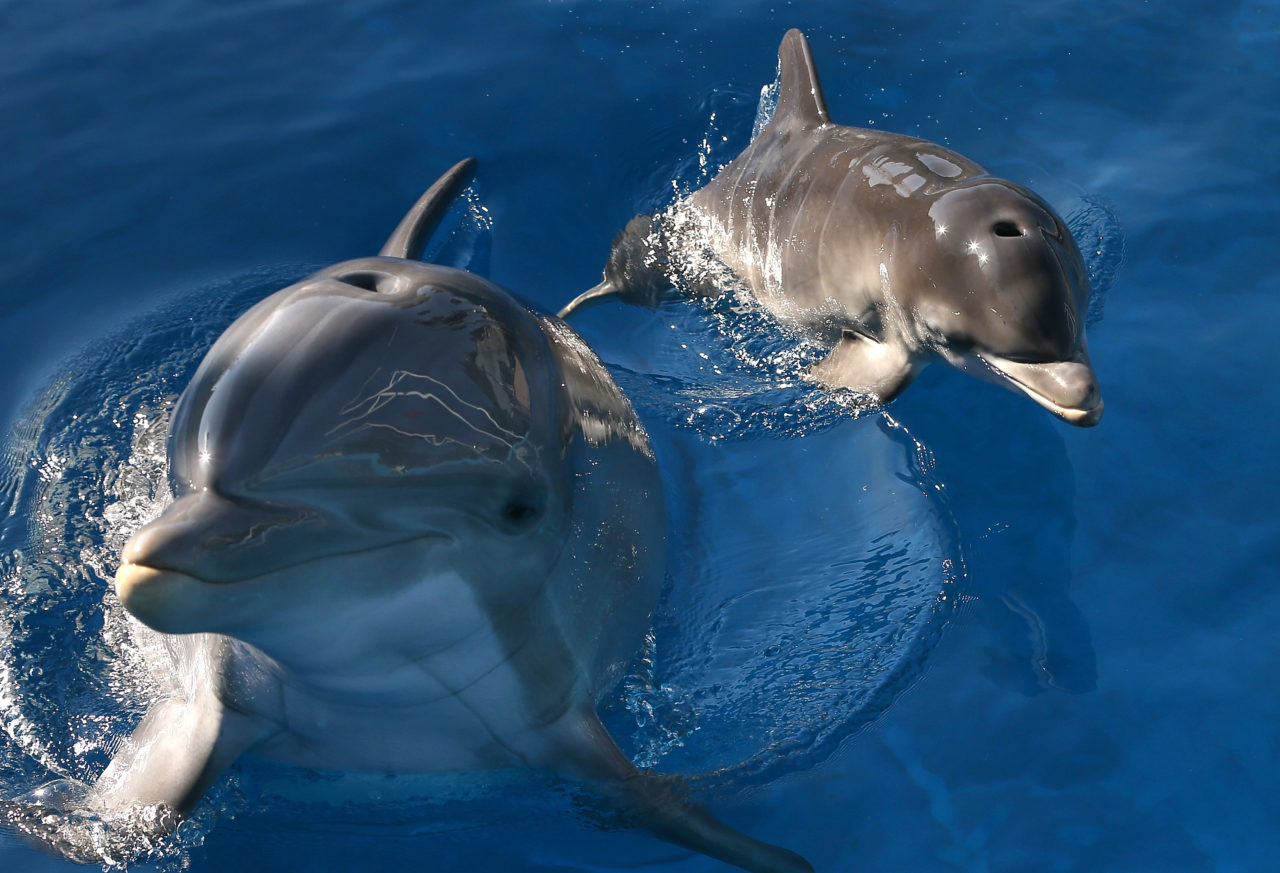We Finally Figured Out Whether Or Not Dolphins Are Happy
Whether or not animals held in captivity are happy has been a long-standing question, which these researchers are trying to get to the bottom of.
By DAVID on May 29, 2018
Animals in captivity has been a long-standing debate. Are the animals happy? Do they know they’re in captivity? Do the animals wish they weren’t’ “trapped” so they can run – or swim – freely? Scientists working with dolphins have been working on answering that very question. They may have figured it out, too.
The research period looked at dolphins over the course of 3 years. Scientists observed dolphins, and tried to figure out what habit they’ve learned. They also wanted to figure out what sorts of activities the dolphins most looked forward to. A couple different scenarios involved the dolphins being left alone to entertain themselves, as well as various human-interaction. It was discovered that the dolphins always looked forward to human interaction above all else. They came to this conclusion because the dolphins were demonstrating “spy hopping.” That’s basically when the dolphins look towards the part of an arena where the trainer would usually come from. It’s the same thing as your dog waiting by the door when he or she hears your car pull in the driveway.
It was determined that a better human/animal bond makes the animals in captivity happier. But is it right or wrong, morally, to keep the animals contained? Well, Birgitta Mercera, the person in charge of one of the “dolphinariums” suggests an answer to that question. She says that “I think that wild dolphins are happier in the wild, and captive-born dolphins are much happier in captivity.” That does make sense. Animals born in captivity under controlled conditions likely wouldn’t survive, or know what to do, if released to the wild. Likewise, animals born in the wild probably shouldn’t be suddenly moved into a small space.
A critic of the study says that the research can’t tell us if the animal is truly happy. “But just because a dolphin interacts with you doesn’t mean that it would choose that lifestyle if it was given a choice,” she says. Which is a seriously valid point. The debate continues. What it comes down to is how they’re taken care of. They may not be unhappy in captivity, but are happy with how they’re being taken care of. The lead researcher, Dr. Isabella Clegg, hopes that the research will be used to better improve the lives of dolphins in captivity. It also comes down to how the animal is being used. “But even if they are in good welfare, we need more research to ensure that their presence is really engaging people with conservation. If they’re just here for our entertainment, that can’t be justified,” she adds. Some deep thought for your Tuesday. See some more on the research here.











